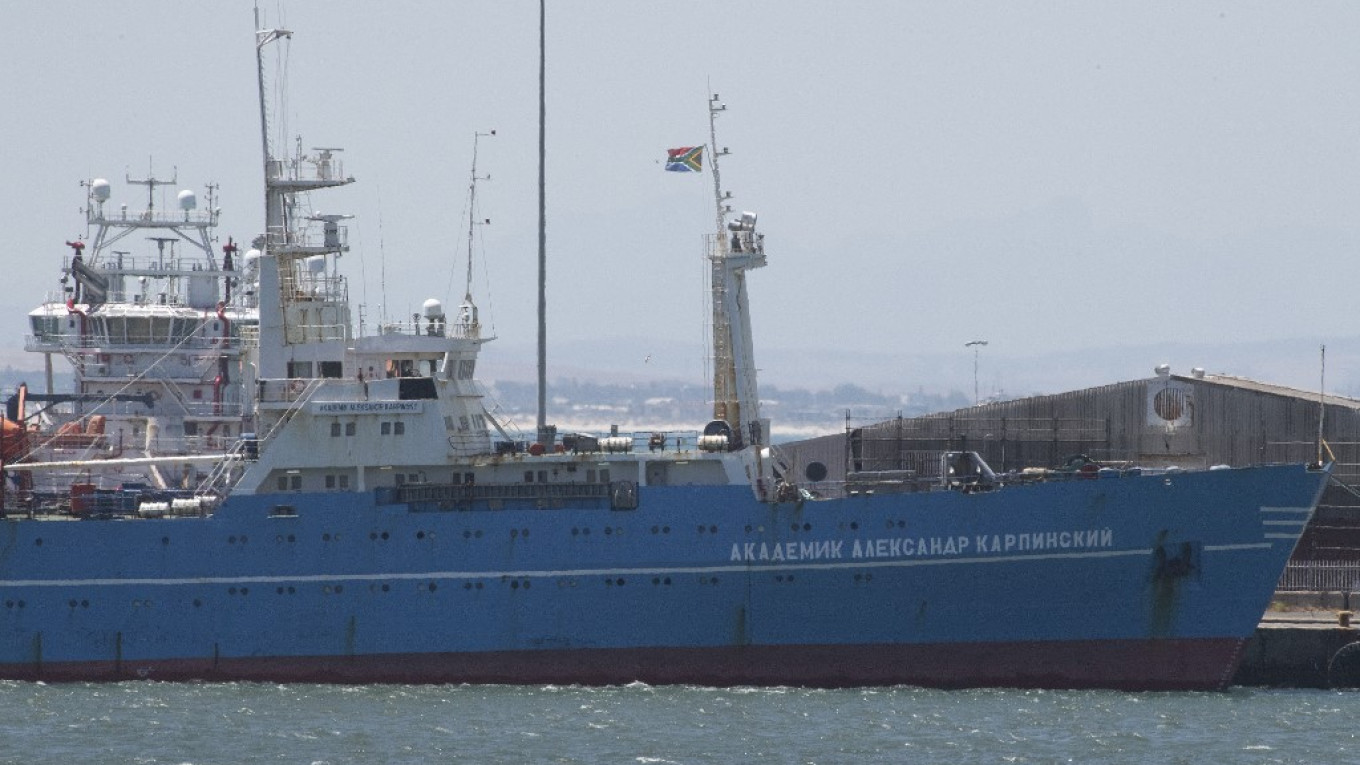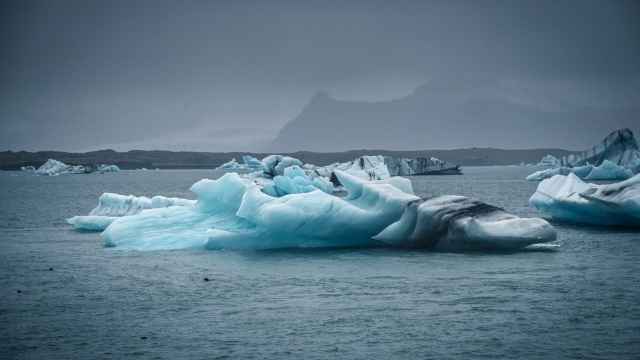A Russian polar research vessel docked in South Africa's Cape Town harbor at the weekend as climate protesters raised fears it could be used to help Moscow explore for minerals in protected Antarctica.
The Akademik Aleksandr Karpinskiy icebreaker is on its way to the Antarctic as part of a scientific expedition launched late last year, according to Russian media.
The ship is owned by the Polar Marine Geosurvey Expedition, a subsidiary of the Russian state-owned mineral exploration company RosGeo.
"We believe that exploitation will be happening next," said Extinction Rebellion spokeswoman Jacqui Tooke.
A small group of environmentalists waving placards gathered at the harbour in Cape Town on Sunday chanting "No more fossil fuels, hands off Antarctica! No more war!"
"We saw the ship come into port at 8:41 on Saturday morning," Extinction Rebellion climate campaigner Cassi Goodman said on Sunday.
Mineral exploitation is banned in Antarctica, and RosGeo has denied allegations that the firm is engaged in the exploration of the icy continent's mineral resources.
RosGeo's activities "both on the continent of Antarctica and in the adjacent seas are exclusively scientific in nature," its spokesman told the Russian newspaper Kommersant on Saturday.
The 68th Russian Antarctic scientific expedition set out to study global climate change and oceanology in the marginal seas of Antarctica among other glaciological research in and around the Antarctic.
The ship arrived days after Russian Foreign Minister Sergei Lavrov was in Pretoria for talks and comes as Western nations voiced irritation at South Africa's close ties with Russia amid Moscow's war on Ukraine.
South Africa has resisted taking sides over the war, which has triggered sweeping Western sanctions against Moscow and attempts to isolate it diplomatically.
This is the second Russian ship to moor in South Africa in as many months.
In December, South Africa was criticized for allowing a sanctioned Russian cargo ship to dock and unload its cargo at a Cape Town naval base.
A vessel tracking app located the Akademik Aleksandr Karpinskiy in Cape Town's port on Sunday and shows that it left St. Petersburg on Christmas day last year.
The southwestern city of Cape Town is a long-established gateway to Antarctica.
"This ship has used Cape Town as a launchpad for these Antarctica missions for over 20 years," Greenpeace campaigner Elaine Nills told AFP on Sunday.
"South Africa has a moral duty on behalf of its own citizens, Africa and the whole world to not enable this kind of activity in an area that is very ecologically sensitive," she said.
The Akademik Aleksandr Karpinskiy will join the vessel Akademik Fedorov, which left Russia in November 2022.
The 1991 Madrid Protocol bans all mineral extraction in Antarctica and includes measures for the protection of its flora and fauna, the prevention of marine pollution, tourism control and waste management.
A Message from The Moscow Times:
Dear readers,
We are facing unprecedented challenges. Russia's Prosecutor General's Office has designated The Moscow Times as an "undesirable" organization, criminalizing our work and putting our staff at risk of prosecution. This follows our earlier unjust labeling as a "foreign agent."
These actions are direct attempts to silence independent journalism in Russia. The authorities claim our work "discredits the decisions of the Russian leadership." We see things differently: we strive to provide accurate, unbiased reporting on Russia.
We, the journalists of The Moscow Times, refuse to be silenced. But to continue our work, we need your help.
Your support, no matter how small, makes a world of difference. If you can, please support us monthly starting from just $2. It's quick to set up, and every contribution makes a significant impact.
By supporting The Moscow Times, you're defending open, independent journalism in the face of repression. Thank you for standing with us.
Remind me later.






